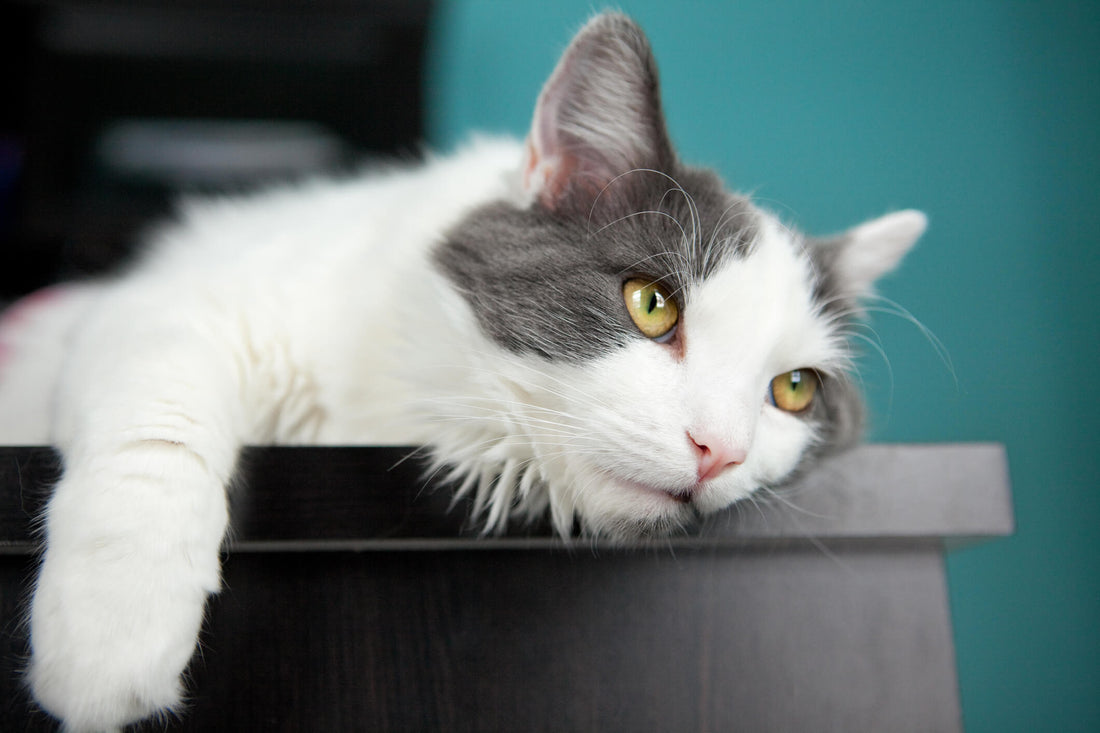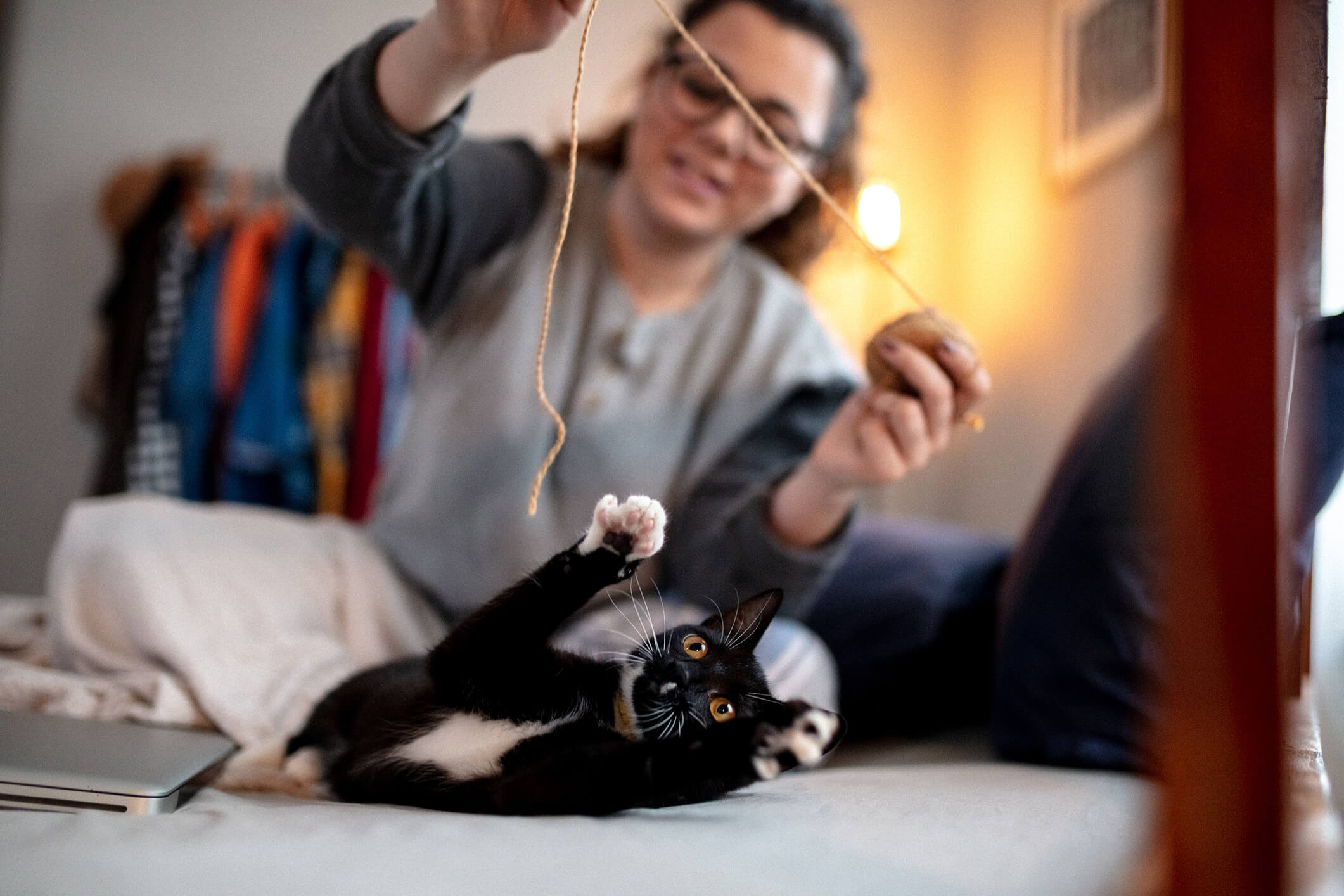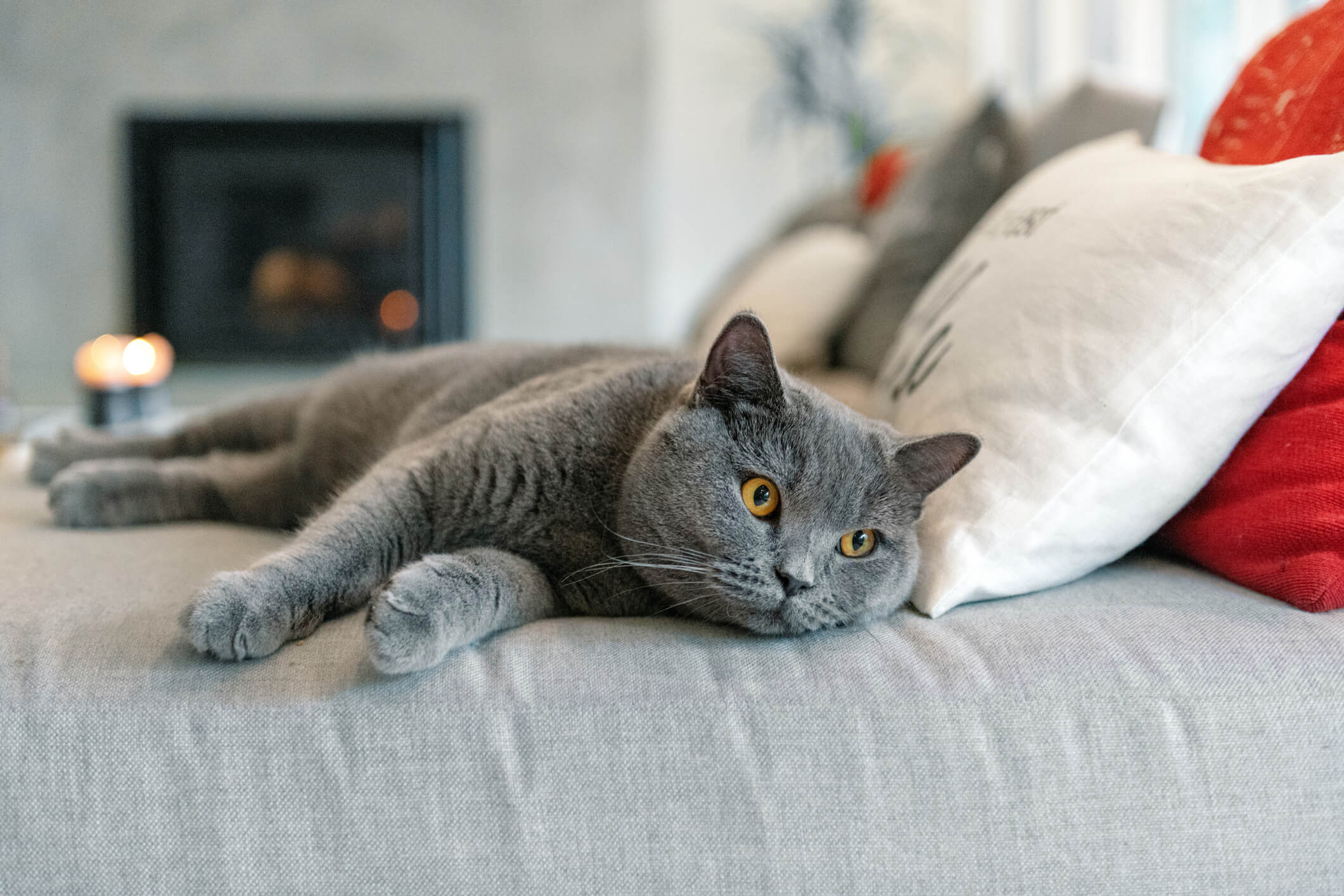
5 Signs Your Cat is Under-Stimulated
Perhaps the greatest joy of being a cat is getting to lounge around all day. The midday snoozes we look forward to aren’t called “cat naps” for nothing! But while it’s normal for your feline to rest, pet parents often wonder if they really need all that sleep or if they’re simply bored.
Cats need a stimulating environment in order to exercise their natural instincts. Those who dwell indoors can quickly become bored living within the same four walls day in and day out. Kitties with little mental stimulation have no choice but to find their own sources of entertainment.
If you’re not sure whether your cat is due for some extra mental stimulation, look for these warning signs:
- The furniture is torn to shreds: Cats need to burn pent-up energy one way or another. With no cat toys to hunt, your furry feline might start destroying possessions that are costly to replace. Smaller kittens might take to scaling your curtains, while adult cats might sink their claws into couch cushions. This behavior isn’t malicious—they simply want to play. You can take the cat out of the wild, but you can’t take the wild out of the cat!
- Your cat is picking fights: If there’s more than one pet in the house, chances are your bored kitty will go looking for a fight. Aggression toward fellow animals is common among under-stimulated cats. Your cat might not leave others alone, even if it’s obvious they don’t want to play. If your cat’s hunting instincts aren’t redirected elsewhere, you might end up with one less fish in the aquarium or a dog with a nasty scratch.
- They’re getting chubby: Not all bored cats start attacking fellow pets and tearing up the house. Some migrate from the couch to the food bowl and back again. Cats are similar to humans in that boredom sometimes leads to overeating. If your cat lives in a boring environment with unlimited access to kibble, they might chow down simply because there’s nothing better to do. Within a few weeks, you might notice your cat has gained weight!
- They won’t stop grooming: Every pet parent knows that cats lick themselves to stay clean. However, a bored cat may seem like they’re taking care of that shiny coat when they’re really doing the opposite. Excessive grooming causes kitties to pull out clumps of fur or chew on the skin. This repetitive behavior can make them agitated, causing them to repeat the cycle all over again.
- They seek attention: Adult cats are well aware of how to get attention from their owners. They might do whatever it takes to get your attention, even if it means raiding the treat stash or meowing incessantly. When these behaviors occur, it’s important to remind yourself that your kitty is just bored and wants you to play—they’re not trying to irritate you!
Health risks of under-stimulation
Boredom is one cause of many negative health conditions in cats. Bored felines who overeat to entertain themselves have an increased risk of developing obesity, which in turn can lead to a slew of other chronic diseases. To make matters worse, cats suffering from under-stimulation don’t get enough exercise. They’re eating too many calories with no way of burning the extra fat.
Under-stimulating environments don’t just cause your kitty to act out. Bored cats often develop mood disorders such as depression due to the lack of activity. Additionally, with nothing to occupy themselves, a bored cat is on the path to cognitive decline. An enriching atmosphere is just as important for their brains as it is for their physical health.
Tips for entertaining your cat

There are plenty of ways to get your kitty up and moving. Switch up their environment by introducing new toys like cat wands, lasers and motion-activated prey. Toys engage your cat’s hunting instincts and divert their attention away from destructive behaviors. What’s more, electronic toys with motion sensors keep your kitties occupied while you’re at work.
Cats don’t just want to chase prey—they want to eat it, too! In addition to cat toys, you can stimulate a kitty’s brain by incorporating puzzle feeders into mealtime. A puzzle feeder will provide the mental challenge kitties crave, and they get food as a reward for solving it. Cats want to earn their food just as they would out in the wild.
Boredom is quickly remedied with a quick play session. However, pet parents should speak with a vet if their furry felines don’t perk up after increased mental stimulation. What owners dismiss as boredom could actually be lethargy, a common symptom that indicates any number of underlying health problems. Whether it’s boredom or something worse, check in with your cat to show them you care!



